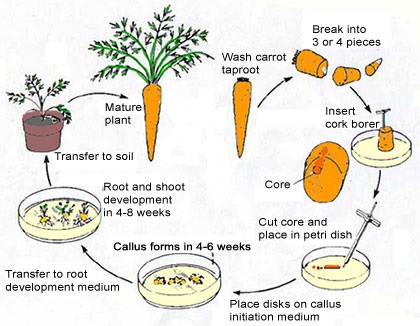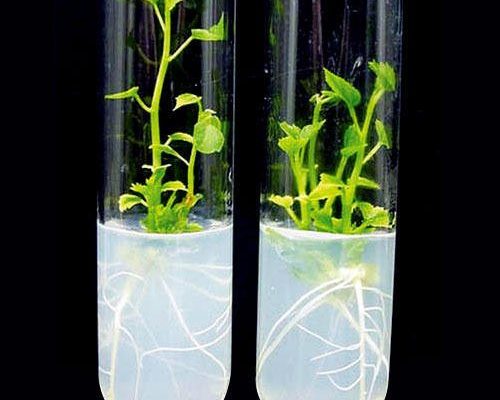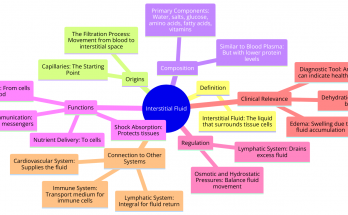What is Tissue culture?
Tissue culture can be defined as the process of growing living cells artificially in the laboratory .
In this process plants are grown by asexual propogation by using living
Tissues in artificial media under sterile condition . Plant tissue are nourished by nutrients, hormones, and light . It is also called micropropagation.
Steps of Tissue culture

- Small pieces are cut from the plant like flower buds, stem tissue, growing tips, leaves, etc.
- They are then transferred to an artificial nutrient medium where they divide rapidly to form a callus.
- This callus is then transferred to a fresh medium containing hormones for growth and differentiation, where it subsequently develops into plantlets.
- The new plantlets are placed in soil to grow into a mature plant.
Importance of Tissue culture
- There are many advantages of tissue culture over other methods of plant propagation.
- It is possible to produce a large number of plants from a single parent in relatively small space and in a short period of time.
- The tissue culture process reduces growing space, labor, and plant maintenance requirements.
- Viruses and other plant diseases are eliminated by propagating the quickly dividing cells of the shoot tip.
- Rapid production of ornamental plants like carnations

